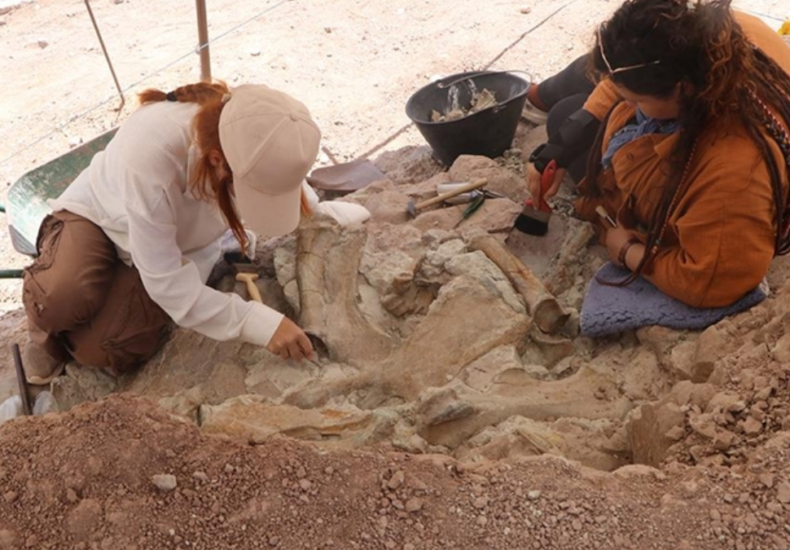
9-Million-Year-Old Fossils of Elephants, Giraffes, and Rhinos Unearthed Together in Türkiye
A stunning fossil discovery in central Türkiye is offering a rare glimpse into the Miocene period’s megafauna. Excavations at the Çorakyerler Vertebrate Fossil Locality in Çankırı have revealed over 20 fossilized remains—including elephants, rhinos, and giraffes—all found within just two square meters of sediment. Led by a 15-member team, the 2025 excavation season has unearthed
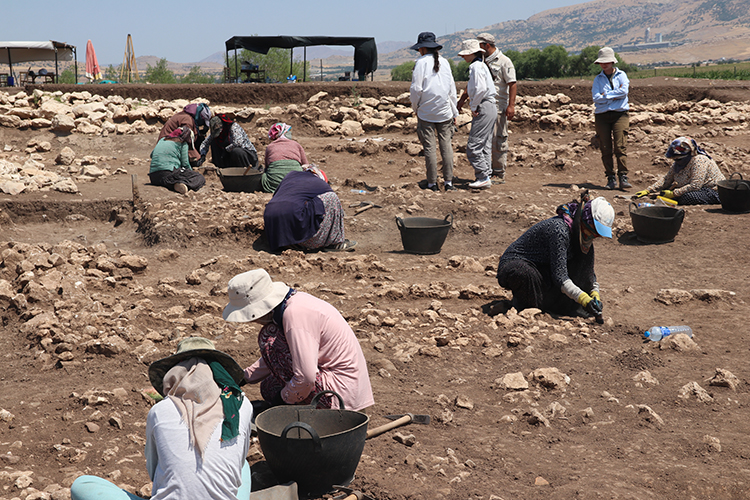
12,000-Year-Old Çayönü Tepesi Reveals Neolithic Grid Structures and a Bronze Age Water Channel
New archaeological discoveries from Çayönü Tepesi, one of the most significant Neolithic sites in Southeastern Türkiye, have brought fresh insights into early settled life. Excavations in the eastern section of the site have unearthed four grid-planned buildings dating to the Neolithic period (10,200–6,500 BCE) and a water channel from the Early Bronze Age (3100–1100 BCE).
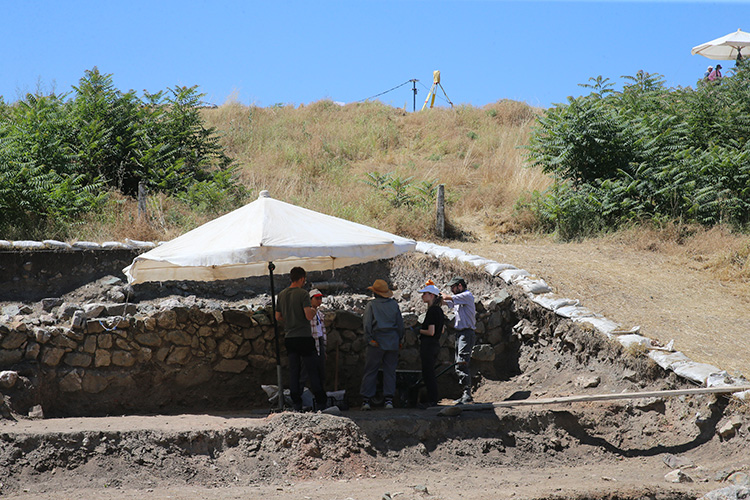
Excavations Resume at Komana: Sacred City of the Anatolian Goddess Ma
Archaeologists have resumed excavations at the ancient city of Komana in Tokat, northern Türkiye, a sacred site once dedicated to the powerful Anatolian goddess Ma. The 2025 season began in early July and will continue until August 15, led by Prof. Dr. Burcu Erciyas of the Middle East Technical University (METU), with the support of
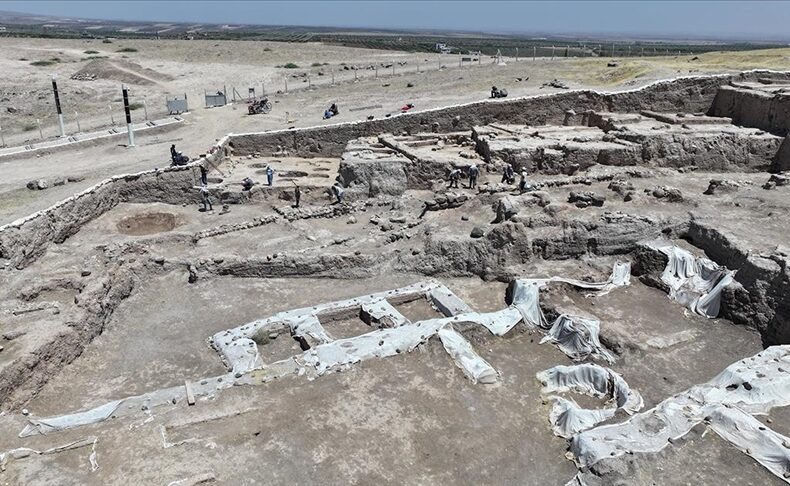
2025 Excavations Begin at Oylum Höyük, a Major Administrative Center of the Hittite Period
Archaeologists have launched the 2025 excavation season at Oylum Höyük, one of the largest archaeological mounds in southeastern Türkiye, located near the Syrian border in Kilis. The site, known for its strategic importance during the Hittite Empire, is yielding new clues about political and administrative structures in the Late Bronze Age. The excavation is being
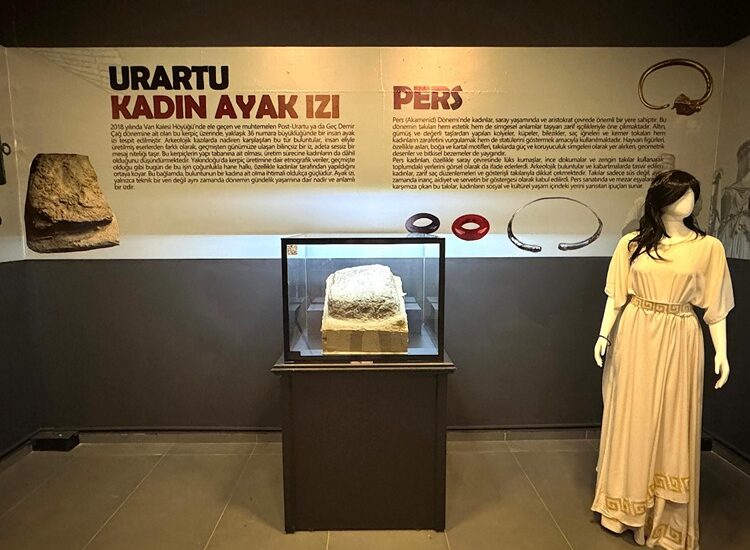
Footprint of an Urartian Woman Goes on Public Display for the First Time in Van Museum
Dating back nearly 3,000 years, a remarkably preserved female footprint imprinted in mudbrick reveals rare insight into daily life and women’s labor during the Urartian era. A silent echo of an ancient life has surfaced for public view: a female footprint from the Urartian civilization is now on display for the first time at the

Turkish Archaeology Student Awarded Prestigious Fellowship for Groundbreaking Research on Ancient Lycia
Batuhan Özdemir’s critical study of 19th-century British perceptions of Lycia earns him a coveted BIAA–Bilkent postdoctoral fellowship, spotlighting Türkiye’s growing presence in international archaeology. A major success in Anatolian heritage studies has emerged from the UK, where Turkish archaeology student Batuhan Özdemir has been awarded a prestigious postdoctoral fellowship jointly supported by the British Institute

1,400-Year-Old Intact Bronze Cauldron Discovered in the Mosaic House at Pergamon
An exceptionally well-preserved bronze cauldron, dating back approximately 1,400 years, has been unearthed during archaeological excavations in the ancient city of Pergamon, located in the Bergama district of İzmir, western Türkiye. The cauldron was found in its original position, inside a pool situated in the stone courtyard of a building complex known as the “Mosaic

Ancient Two-Story Stoa Unearthed in Assos Reflects Hellenistic Royal Architecture
Archaeologists in the ancient city of Assos have begun uncovering a monumental 3,500-year-old stoa—an architectural structure once used as a covered walkway or gathering space in classical Greece. Stretching 110 meters in length and spanning two stories, the stoa is believed to represent a hallmark of Hellenistic royal design, reflecting the influence of Pergamon kings
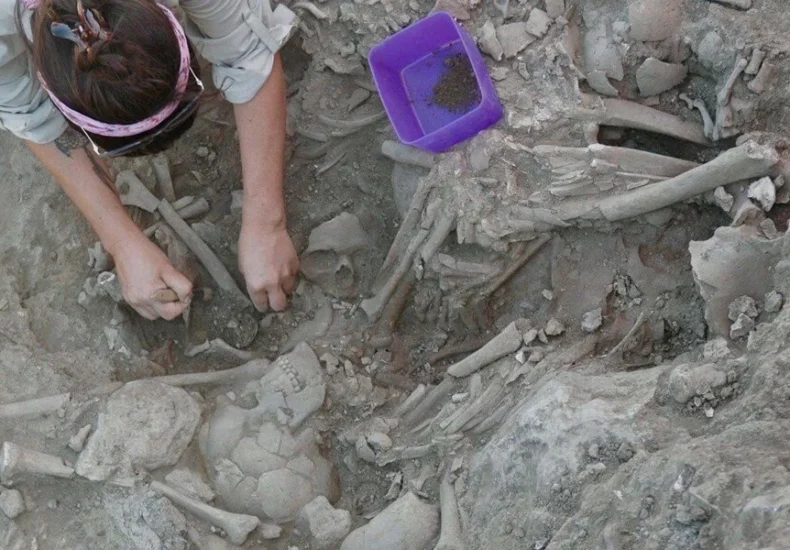
Gökçeada: Home to the Earliest Agricultural Village in the Aegean Islands
Archaeological excavations on Türkiye’s Gökçeada (Imbros) have revealed the earliest known agricultural and livestock-based village settlement among the Aegean Islands. The Uğurlu-Zeytinlik mound, located on the island’s western coast, has been under systematic excavation for 15 years under the direction of Prof. Dr. Burçin Erdoğu from Akdeniz University, with the support of the Turkish Ministry
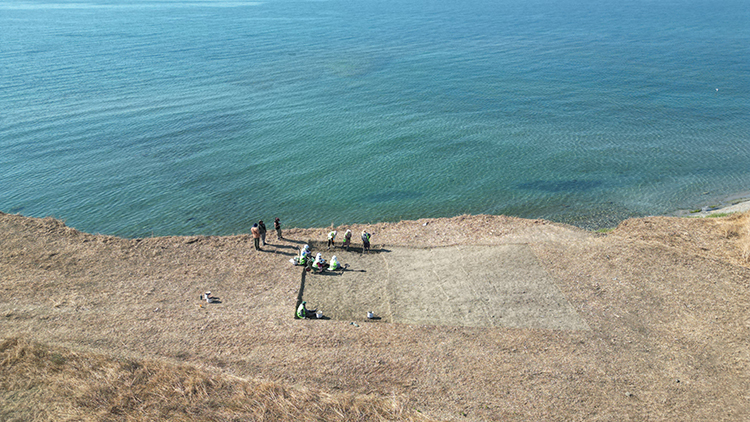
Uncovering the Thracian Legacy: Excavations Begin at Heraion-Teikhos in Tekirdağ
Excavations have resumed at the ancient city of Heraion-Teikhos (“City of Hera”), located in Türkiye’s northwestern province of Tekirdağ, with a new focus on the seaside section of the site. Archaeologists are aiming to uncover traces of the Thracian civilization, one of the most enigmatic cultures of the ancient Balkans and Anatolia. The excavation is
